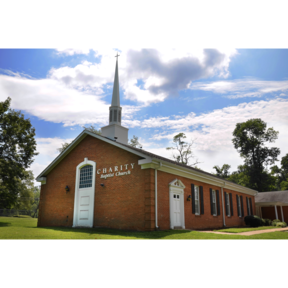Communion

Sermon • Submitted • Presented • 31:16
0 ratings
· 150 viewsFiles
Notes
Transcript
Sermon Tone Analysis
A
D
F
J
S
Emotion
A
C
T
Language
O
C
E
A
E
Social
The Early Church “Broke Bread”
The Early Church “Broke Bread”
42 All the believers devoted themselves to the apostles’ teaching, and to fellowship, and to sharing in meals (including the Lord’s Supper), and to prayer.
7 On the first day of the week, we gathered with the local believers to share in the Lord’s Supper. Paul was preaching to them, and since he was leaving the next day, he kept talking until midnight.
Communion Defined in a Crisis Situation
Communion Defined in a Crisis Situation
17 But in the following instructions, I cannot praise you. For it sounds as if more harm than good is done when you meet together.
18 First, I hear that there are divisions among you when you meet as a church, and to some extent I believe it.
19 But, of course, there must be divisions among you so that you who have God’s approval will be recognized!
20 When you meet together, you are not really interested in the Lord’s Supper.
21 For some of you hurry to eat your own meal without sharing with others. As a result, some go hungry while others get drunk.
22 What? Don’t you have your own homes for eating and drinking? Or do you really want to disgrace God’s church and shame the poor? What am I supposed to say? Do you want me to praise you? Well, I certainly will not praise you for this!
23 For I pass on to you what I received from the Lord himself. On the night when he was betrayed, the Lord Jesus took some bread
24 and gave thanks to God for it. Then he broke it in pieces and said, “This is my body, which is given for you. Do this in remembrance of me.”
25 In the same way, he took the cup of wine after supper, saying, “This cup is the new covenant between God and his people—an agreement confirmed with my blood. Do this in remembrance of me as often as you drink it.”
26 For every time you eat this bread and drink this cup, you are announcing the Lord’s death until he comes again.
27 So anyone who eats this bread or drinks this cup of the Lord unworthily is guilty of sinning against the body and blood of the Lord.
28 That is why you should examine yourself before eating the bread and drinking the cup.
29 For if you eat the bread or drink the cup without honoring the body of Christ, you are eating and drinking God’s judgment upon yourself.
30 That is why many of you are weak and sick and some have even died.
The Problem of Divided Thinking Leads to Divided Actions/Activity (vv. 18-19)
The Problem of Divided Thinking Leads to Divided Actions/Activity (vv. 18-19)
The Problem of Selfish Participation that Denies the Nature and Work of Jesus (vv. 20-22)
The Problem of Selfish Participation that Denies the Nature and Work of Jesus (vv. 20-22)
The Real Communion Involves Three Main Points:
The Real Communion Involves Three Main Points:
#1 - The Real, Physical Body of Jesus was Sacrificed for Our Sin and Disobedience
#2 - The Shed Blood of Jesus Has Paid the Price For My Sin, Finalized the Dispensation and Covenant of the Law, Established a New Dispensation and Covenant between God and Man that begins with Total Trust in The Name, the Work and the Person of Jesus Christ and is dependent on His Sacrifice for Eternal Salvation
#3 - Each Time the Church Body Participates in Holy Communion we Publicly Proclaim the Importance of the Death of Jesus as the Express Moment in Time Where The Plan of God and our relationship to God are forever rooted in His Sacrifice.
This Public Proclamation is Relevant in all moments of Church History and only Culminate When Jesus Physically and Literally returns.
Preparation for Communion Involves:
Preparation for Communion Involves:
Examination - Is our motivation and are our activities reminiscent of our conversion through the shed blood of Jesus, or are we still sinning which brings condemnation on our immediate context (not eternal judgement) (vv. 17-28)
Purification - We confess our immediate sin and disobedience - though covered by the cross - as a method of choosing appropriate thinking and activity in our present context- We judge our actions unworthy and cease from them (v. 31-34) so that God does not need to step in and provide penalty and punitive action
Altruism - We express Charity and Selflessness by “waiting for” or “sharing with” others. We keep our appetites out of the Church Service and make sure others are our primary concern, (vv. 33-34)
